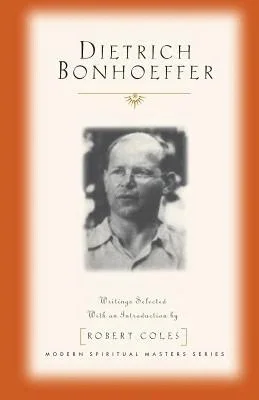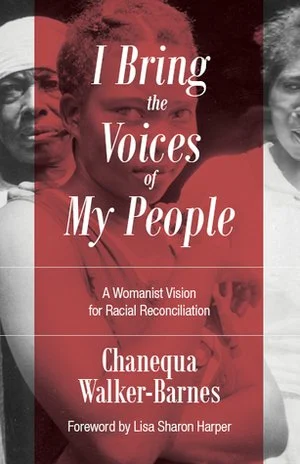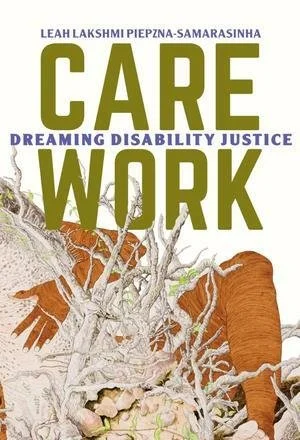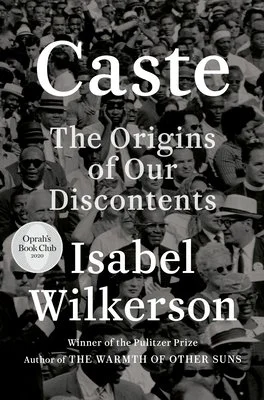This Lent, we invite you to journey with us through selected readings from Dietrich Bonhoeffer, edited by Robert Coles. This schedule is designed to guide you through the season with 10-12 pages of reading per week, along with optional suggestions for those who wish to dive deeper.
I Bring the Voices of My People: A Womanist Vision for Racial Reconciliation
Book by Chanequa Walker-Barnes
Overview
Disrupting the racist and sexist biases in conversations on reconciliation.
Chanequa Walker-Barnes offers a compelling argument that the Christian racial reconciliation movement is incapable of responding to modern-day racism. She demonstrates how reconciliation’s roots in the evangelical, male-centered Promise Keepers’ movement has resulted in a patriarchal and largely symbolic effort, focused upon improving relationships between men from various racial-ethnic groups.
Walker-Barnes argues that highlighting the voices of women of color is critical to developing any genuine efforts toward reconciliation. Drawing upon intersectionality theory and critical race studies, she demonstrates how living at the intersection of racism and sexism exposes women of color to unique experiences of gendered racism that are not about relationships, but rather are about systems of power and inequity.
Refuting the idea that race and racism are “one-size-fits-all,” I Bring the Voices of My People highlights the particular work that White Americans must do to repent of racism and to work toward racial justice and offers a constructive view of reconciliation that prioritizes eliminating racial injustice and healing the damage that it has done to African Americans and other people of color.
Care Work: Dreaming Disability Justice
Book by Leah Lakshimi Piepzna-Samarasinha
Overview
In this collection of essays, Lambda Literary Award-winning writer and longtime activist and performance artist Leah Lakshmi Piepzna-Samarasinha explores the politics and realities of disability justice, a movement that centers the lives and leadership of sick and disabled queer, trans, Black, and brown people, with knowledge and gifts for all.
Care Work is a mapping of access as radical love, a celebration of the work that sick and disabled queer/people of color are doing to find each other and to build power and community, and a tool kit for everyone who wants to build radically resilient, sustainable communities of liberation where no one is left behind. Powerful and passionate, Care Work is a crucial and necessary call to arms.
God is a Black Woman
Book by Christena Cleveland
Overview
In this timely, much-needed book, theologian, social psychologist, and activist Christena Cleveland recounts her personal journey to dismantle the cultural “white male god” and uncover the Sacred Black Feminine, introducing a Black Female God who imbues us with hope, healing, and liberating presence.
For years, Christena Cleveland spoke about racial reconciliation to congregations, justice organizations, and colleges. But she increasingly felt she could no longer trust in the God she’d been implicitly taught to worship—a white male God who preferentially empowered white men despite his claim to love all people. A God who clearly did not relate to, advocate for, or affirm a Black woman like Christena.
Her crisis of faith sent her on an intellectual and spiritual journey through history and across France, on a 400-mile walking pilgrimage to the ancient shrines of Black Madonnas to find healing in the Sacred Black Feminine. God Is a Black Woman is the chronicle of her liberating transformation and a critique of a society shaped by white patriarchal Christianity and culture. Christena reveals how America’s collective idea of God as a white man has perpetuated hurt, hopelessness, and racial and gender oppression. Integrating her powerful personal story, womanist ideology, as well as theological, historical, and social science research, she invites us to take seriously the truth that God is not white nor male and gives us a new and hopeful path for connecting with the divine and honoring the sacredness of all Black people.
Caste: The Origins of Our Discontents
Book by Isabel Wilkerson
Overview
In this brilliant book, Isabel Wilkerson gives us a masterful portrait of an unseen phenomenon in America as she explores, through an immersive, deeply researched, and beautifully written narrative and stories about real people, how America today and throughout its history has been shaped by a hidden caste system, a rigid hierarchy of human rankings.
Beyond race, class, or other factors, there is a powerful caste system that influences people’s lives and behavior and the nation’s fate. Linking the caste systems of America, India, and Nazi Germany, Wilkerson explores eight pillars that underlie caste systems across civilizations, including divine will, bloodlines, stigma, and more. Using riveting stories about people—including Martin Luther King, Jr., baseball’s Satchel Paige, a single father and his toddler son, Wilkerson herself, and many others—she shows the ways that the insidious undertow of caste is experienced every day. She documents how the Nazis studied the racial systems in America to plan their outcasting of the Jews; she discusses why the cruel logic of caste requires that there be a bottom rung for those in the middle to measure themselves against; she writes about the surprising health costs of caste, in depression and life expectancy, and the effects of this hierarchy on our culture and politics. Finally, she points forward to ways America can move beyond the artificial and destructive separations of human divisions, toward hope in our common humanity.
Original and revealing, Caste: The Origins of Our Discontents is an eye-opening story of people and history, and a reexamination of what lies under the surface of ordinary lives and of American life today.
God and the Gay Christian: The Biblical Case in Support of Same-Sex Relationships
Book by Matthew Vines
Overview
As a young Christian man, Matthew Vines harbored the same basic hopes of most young people: to someday share his life with someone, to build a family of his own, to give and receive love. But when he realized he was gay, those hopes were called into question. The Bible, he’d been taught, condemned gay relationships.
Feeling the tension between his understanding of the Bible and the reality of his same-sex orientation, Vines devoted years of intensive research into what the Bible says about homosexuality. With care and precision, Vines asked questions such as:
• Do biblical teachings on the marriage covenant preclude same-sex marriage or not?
• How should we apply the teachings of Jesus to the gay debate?
• What does the story of Sodom and Gomorrah really say about human relationships?
• Can celibacy be a calling when it is mandated, not chosen?
• What did Paul have in mind when he warned against same-sex relations?
Unique in its affirmation of both an orthodox faith and sexual diversity, God and the Gay Christian is likely to spark heated debate, sincere soul searching, even widespread cultural change. Not only is it a compelling interpretation of key biblical texts about same-sex relations, it is also the story of a young man navigating relationships with his family, his hometown church, and the Christian church at large as he expresses what it means to be a faithful gay Christian.
The Cross and the Lynching Tree
Book by James H. Cone
Overview
The cross and the lynching tree are the two most emotionally charged symbols in the history of the African American community. In this powerful work, theologian James H. Cone explores these symbols and their interconnection in the history and souls of black folk.
Solus Jesus: A Theology of Resistance
Book by Emily Swan and Ken Wilson
Overview
If you read one book this year about the future of Christianity, then choose this book. Five hundred years ago the Protestant Reformation claimed the Bible as the authoritative guide for Christian living (“Sola Scriptura!” Only Scripture!). In this groundbreaking work, Emily Swan and Ken Wilson claim the authority of the church is shifting back to where it should be: in Jesus (Solus Jesus!). As co-founders of Blue Ocean Faith, Swan and Wilson are pioneering what it means to be post-evangelical—post-Protestant, even—in a time when such re-imagining is desperately needed.
Solus Jesus not only grapples with the authority question in Christianity, but also provides a massive re-think of traditional atonement theories. Leaning on the work of René Girard, they conclude that the life, death, and resurrection of Jesus together reveal a completely good, non-violent God who is on the side of the oppressed and scapegoated of this world. As a work of queer theology, the book is intersectional in its understanding of justice and invites readers to reconsider our understanding of what it means to follow Jesus.
This book is timely, to say the least. For Christians looking for guidance on how to address distressing issues of injustice; for help understanding how they can faithfully follow Jesus and love their neighbors as themselves; and for practices for how to experience the living Jesus and his Spirit of love—Solus Jesus is the book for you.








